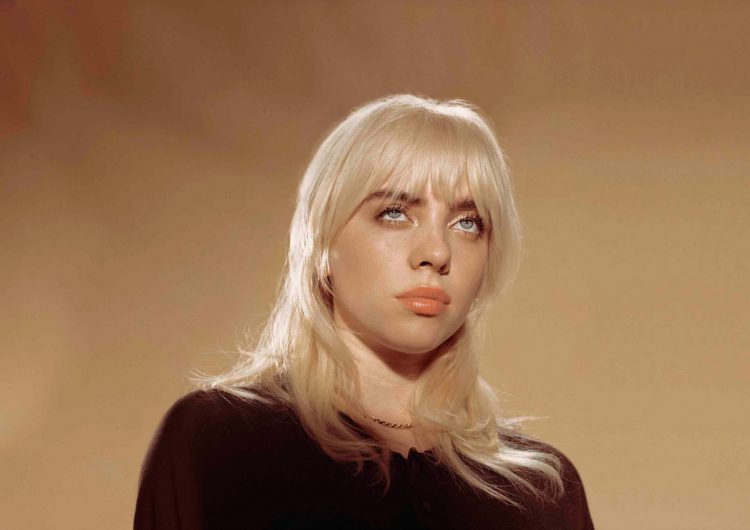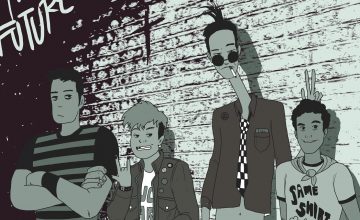A hit debut of a young pop star can hinge on many things, but it boils down to something many search for in famous people: relatability.
If Olivia Rodrigo had the heartwrenching “Driver’s License” that took us back to first loves and the angst that comes with it on “Sour,” Billie Eilish’s own debut “When We All Fall Asleep, Where Do We Go?” had the weirdness of teenagehood and other dark subjects parents would hide away from their pubescent kids.
But let me be clear: Billie’s recent 16-track sophomore album “Happier Than Ever” is a bit different from that. Between the early 2019 release of “Asleep” until the present time, the Los Angeles-based musician has been through a lot.
She’s been shoved into the public eye, judged by millions of strangers for what she chose what or what not to wear. She won five Grammys and felt publicly embarrassed about it. Truth be told, some of us probably haven’t experienced anything of that magnitude. So, you’ve come to expect that the thematic ideas that surround “Happier than Ever” would be out of our reach, at least for mere mortals like us.
On the surface, it is kind of true. The album’s 13th track “NDA” paints a picture of a post-hookup scene, where Billie, just as its title hints, requests a lover to sign a non-disclosure agreement lest they start talking to tabloids, sandwiched between lines like “30 under 30 for another year.” In “Overheated,” she sings about the dark cloud of body shaming that seems to follow her like a paparazzo, while “Goldwing” sounds like a cautionary tale of fame, made grand by a translated sample of the “Rigveda,” an ancient Hindu poem.
But nothing can be more on the nose than the spoken word interlude “Not My Responsibility,” which she debuted on her short-lived tour. Here, Billie directly calls out her acting grand jury—strangers on the internet—with questions such as “Do my shoulders provoke you? The body I was born with, is it not what you wanted?”
Like most of the album, it’s poetic. “Happier Than Ever” seems like an elevated version of Billie, down to the album art’s angelic motif to the retro sound she and her brother/producer Finneas concocted. It’s pristine on the outside, but on her face, there are fresh tears. Because while the album’s title promised some kind of fully realized Billie, the lyrics make it seem that she’s still trying to reach it herself.
View this post on Instagram
And there lies the relatability, beyond problems of the glitz, the glamour, and the dark side of stardom. “Happier Than Ever” might be chock-full of references to a post-fame Billie, but it’s founded on normal anxieties that any coming-of-age story has.
The opener “Getting Older” cracks the rose-tinted glasses we view adulthood on with lyrics like “I wish someone had told me I’d be doin’ this by myself” and “Things I once enjoyed / Just keep me employed now.” The song’s outro promises to reveal her traumas in the next tracks like a series of narratives filled with smooth transitions.
In Billie’s songwriting, growing up isn’t only an inward process—it also comes with detaching yourself from toxic relationships, a topic that’s prevalent throughout the record. “Getting Older” jumps to “I Didn’t Change My Number,” a rhythmic take on self-worth. The theme continues with previously released singles “Lost Cause” and “Your Power,” the latter a realistic take on predators’ exploitation of young women. The title track “Happier Than Ever”—which shifts into a rock ballad later on—drives it home with a single line: “Just fuckin’ leave me alone.”
“Happier Than Ever” might be chock-full of references to a post-fame Billie, but it’s founded on normal anxieties that any coming-of-age story has.
But there’s more to the coming-of-age tale that Billie presents, as heard in the exploration of her own sensuality in “Billie Bossa Nova.” She comes to terms with its softer side, but she also tackles the harsher parts with its lusty twin “Oxytocin,” a complementary track that warns her lovers to run. With these and the existential “Everybody Dies,” Billie Eilish’s second album thrives in realism with or without fame, from the discovery of a budding romance in “Halley’s Comet” to the heartbreak that comes crashing down in “Male Fantasy.”
Yet, outside its darkness, there are little signs of the brighter side of growth. For Billie Eilish’s self in “Happier Than Ever,” it all points to one thing—the idealized version of her that haunts the record, found at the end of her coming-of-age story, who no longer wants to stay a myth.
Listen to “Happier Than Ever” below.
Read more:
Billie Eilish kicks off her tour by baring her shoulders, because it’s her body and her right
Let’s not make Billie Eilish feel bad about her success
Billie Eilish tells us the reason behind @wherearetheavocados
Photography by Kelia Anne MacCluskey for “Happier Than Ever”

























Comments